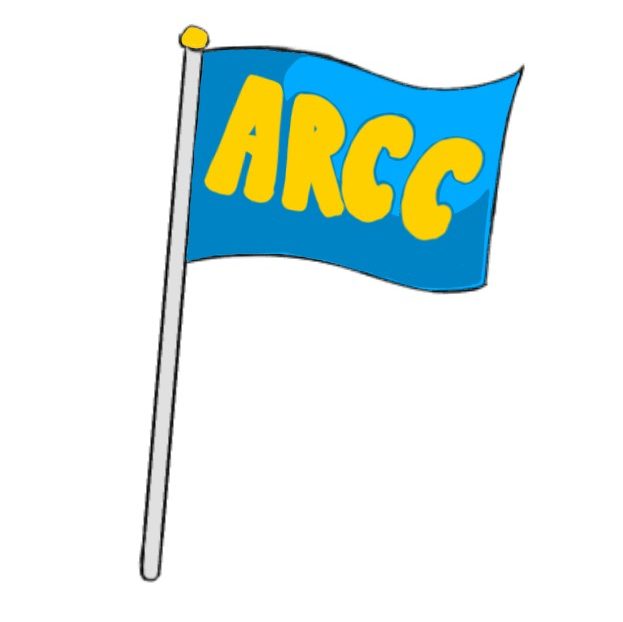![[DEBATES] Prestigious colleges: value or hype?](https://www.mvviewer.org/wp-content/uploads/2024/12/buildings.png)

Many fictional characters went to Ivy League schools, from Rory Gilmore’s turbulent time at Yale to Andy Bernard’s never ending bragging of his time at Cornell. However, many high school students around America wonder if the prestige of such a school — not to mention the cost — is worth it.
A four-year degree at Harvard, including books, tuition and other expenses, cost $334,152 in 2023. By comparison, the University of Minnesota’s four-year cost for state residents was $124,396 based on 2022-23 numbers. The difference in total cost is more than $200,000. For most people, this difference in price is enough to push them away from committing to an Ivy League or a college of similar merit. However, going to a prestigious school does have its benefits.
The common argument against prestigious schools is that a degree is the same regardless of where you go, and although that is true on paper, the respect received and the opportunities acquired are not the same as when attending a very prestigious college. According to Crimson Education, a multinational university admissions consultancy, students at Ivy Leagues have a much higher chance to develop long lasting relationships and connections with people of importance due to the institutions’ extensive alumni networks, number of alumni working at top organizations and the reputation of the schools. These connections are so important because they serve as a link to future job opportunities.
Furthermore, many companies appreciate a degree from a highly esteemed school and are more likely to give a high-paying position to someone with such a degree over a person without. According to Payscale, a data company that provides data on job compensation, the median salary for a graduate from a non-Ivy League school after three years is $58,643 whereas the average graduate from an Ivy League school makes $86,025 – 32% higher than non-ivy league graduates. This advantage carries on throughout the graduate’s entire career with a 37% advantage after 20 years of work experience, with a non-Ivy League graduate’s median salary being $101,777 compared to the Ivy League graduate’s salary of $161,888.
Furthermore, although some argue that Ivy Leagues and other prominent universities are too expensive to attend, these institutions are actually able to allocate large amounts of money towards financial aid due to their large endowments. In a list of the 25 most generous universities for financial aid by Best Colleges, Yale, Dartmouth and Harvard took the top three spots, all giving 100% need-based financial aid without loans. This helps families that are not able to afford the tuition of a top school even though the student could get accepted. According to the Harvard website, 24% of Harvard families do not have to pay anything in terms of tuition. This is because Harvard states that if a student’s family income is less than $85,000, tuition will be entirely covered by the university. In contrast, the University of Minnesota gives need-based financial aid but through work-study programs or federal loans, with the average aid package being $15,530 per year compared to Harvard’s average aid package of $68,700 a year according to U.S. News and World Report.
The benefits of Ivy League and prestigious schools outweigh the drawbacks of attending these schools. These institutions provide unparalleled academic resources, along with the opportunity to build important networks and connections that students would not be able to develop through a “lower ranked” university. While the cost of attendance can be high, financial aid packages and the long-term career benefits make these top schools a wise investment. For students who are committed to excellence and seek to challenge themselves in an intellectually stimulating environment, these universities can lead to significant success and open many doors for a bright future.

Fall is college decision season at Mounds View and high schools all over the nation. While looking into schools, it is hard to avoid the lure of elite universities. From the Ivy Leagues to top public schools, they all come with big names and big price tags. While the reputation of these places might seem enticing, their pros do not outweigh their cons or the pros of other schools.
Many argue that prestigious schools help students get better-paying jobs. According to Payscale, 20 years after graduation, Harvard alums receive an average wage $760,000 more than the average wage for people with bachelor’s degrees. Though this might seem like an obvious benefit of attending a prestigious university, it is because wealthy students are disproportionately admitted to these schools. Economists Dale and Krueger found that students with parents in the top 1% are 34% more likely to get admitted to an elite university than people from the middle class. These top schools do not act as a way for the best students to get a quality education; instead they are for the richest students. The disproportionate demographics inflate the numbers, making prestigious colleges seem better than they are.
Furthermore, these schools do not necessarily determine success. Of the current CEOs of the top 10 Fortune 500 companies, a majority attended state schools according to Investopedia. Though three of them attended very prestigious schools, they all are in similar positions. For example, Doug McMillian, CEO of Walmart, attended University of Arkansas, which is ranked only 189th in the ranking of best national colleges by US News. His estimated net worth is $416 million. Though a prestigious college might help, it is entirely possible to succeed with an education from an average school.
Often it is the student, rather than the school that makes the prestigious college worth it. In a study by Opportunity Insights, a Harvard-based economist group, they took students waitlisted by Ivy Leagues and compared the wages of those who got in versus those who instead went to a state school. They found that there was a statistically insignificant difference between both groups’ wages. Ivy league schools cost on average 198% more than the average in-state public college. It is not worth it for top students to pay so much more just to get the same outcomes. Though it might not earn as many bragging rights, avoiding years of debt to earn the same amount is a no-brainer.
The prestigiousness of a college is not a decider of success, according to Stanford’s School of Education, and therefore should not be the main determiner of where one should go. Elite schools may be overly competitive and discouraging to some students, despite rankings stating that they are supposed to be the best schools. College is most teens’ first experience living outside of home, so to enter into an environment that does not feel welcoming can be draining. Class size, setting and coursework can all be important in deciding if a school is an environment that a student would learn well in, beyond just prestige.
Though reputation can be important for students, it should only be one factor in the decision of where to go. Going to an elite school is not worth it if the environment does not set a student up for success. Finding a school that fits students, their goals and also their willingness to pay should come before prestige.
-
 Debates[DEBATES] Should we de-extinct species?
Debates[DEBATES] Should we de-extinct species? -
Debates[DEBATES] The GMO dilemma
-
 Debates[DEBATES] Reevaluating Primary Care Pay
Debates[DEBATES] Reevaluating Primary Care Pay -
 Debates[DEBATES] Is tipping outdated?
Debates[DEBATES] Is tipping outdated? -
 Debates[DEBATES] The vote split: People vs. process
Debates[DEBATES] The vote split: People vs. process -
 Debates[DEBATES] "Don't wake the demon up"
Debates[DEBATES] "Don't wake the demon up" -
 Debates[DEBATES] "It's just Big Me"
Debates[DEBATES] "It's just Big Me" -
![[DEBATE] Should advanced classes be eliminated?](https://www.mvviewer.org/wp-content/uploads/2024/01/Untitled161-2-1200x796.png) Debates[DEBATE] Should advanced classes be eliminated?
Debates[DEBATE] Should advanced classes be eliminated? -
![[DEBATE] What’s better? Coed vs single-gender schools](https://www.mvviewer.org/wp-content/uploads/2023/12/Untitled153_20231215153759-1-1200x405.png) Debates[DEBATE] What’s better? Coed vs single-gender schools
Debates[DEBATE] What’s better? Coed vs single-gender schools -
![[DEBATE] Should legacy admissions still exist?](https://www.mvviewer.org/wp-content/uploads/2023/12/IMG_1460-1200x1200.jpg) Debates[DEBATE] Should legacy admissions still exist?
Debates[DEBATE] Should legacy admissions still exist? -
 OpinionPublic attitudes affect online fueds
OpinionPublic attitudes affect online fueds -
 Opinion[SATIRE] Why birds aren't real
Opinion[SATIRE] Why birds aren't real -
Opinion[OPINION] Passion meets awareness in railfanning
-
Opinion[OPINION] Higher education fails us
-
Opinion[OPINION] America’s second Gilded Age?
-
 Opinion[OPINION] Move free hours back to the library
Opinion[OPINION] Move free hours back to the library -
Opinion[OPINION] Dressing revealing is not "sexually liberating"
-
 Opinion[OPINION] Women and Earth pay the price
Opinion[OPINION] Women and Earth pay the price -
Opinion[OPINION] How social media has ruined feminism
-
 Opinion[OPINION] The truth about the "War on Christmas"
Opinion[OPINION] The truth about the "War on Christmas" -
 Print ArticleNational curler: Violet Bartels
Print ArticleNational curler: Violet Bartels -
 Print ArticleMounds View fencing gets to the point
Print ArticleMounds View fencing gets to the point -
 Print ArticleReversing the roles of iconic Nintendo characters
Print ArticleReversing the roles of iconic Nintendo characters -
 Print ArticleSpeed into the theater: Sonic the Hedgehog 3
Print ArticleSpeed into the theater: Sonic the Hedgehog 3 -
 Print ArticleWhat is a Winter Arc?
Print ArticleWhat is a Winter Arc? -
 Print ArticleHow are snow days decided?
Print ArticleHow are snow days decided? -
Print ArticleMustangs take to the skies in pursuit of aviation
-
 Print ArticleRobotics team competes in world championship
Print ArticleRobotics team competes in world championship -
 Print ArticleMystery Cove: details of Mall of America’s upcoming waterpark revealed
Print ArticleMystery Cove: details of Mall of America’s upcoming waterpark revealed -
 Print ArticleUnwrapping Taco Bell’s Cantina Chicken Menu
Print ArticleUnwrapping Taco Bell’s Cantina Chicken Menu




